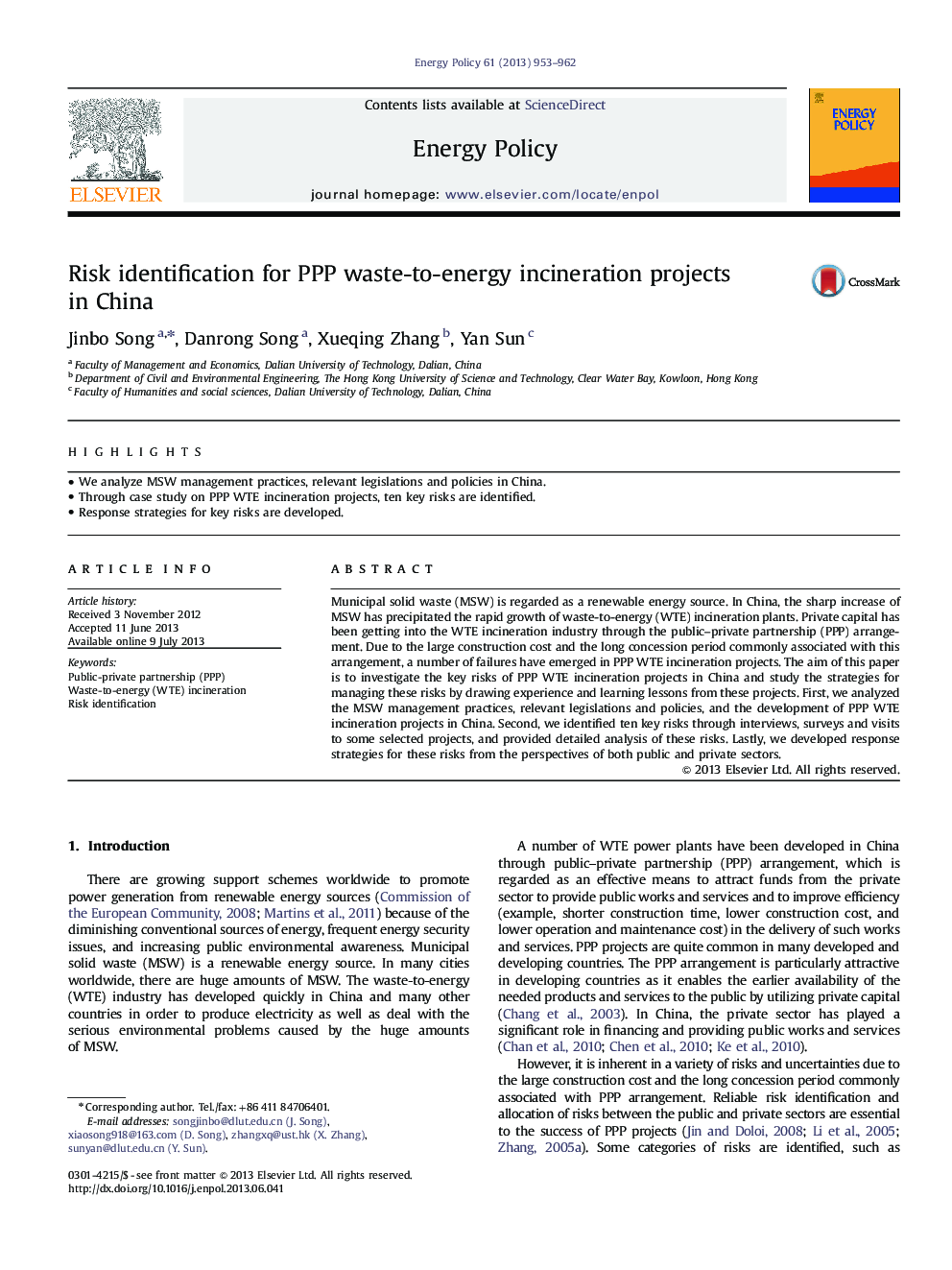| Article ID | Journal | Published Year | Pages | File Type |
|---|---|---|---|---|
| 7405005 | Energy Policy | 2013 | 10 Pages |
Abstract
Municipal solid waste (MSW) is regarded as a renewable energy source. In China, the sharp increase of MSW has precipitated the rapid growth of waste-to-energy (WTE) incineration plants. Private capital has been getting into the WTE incineration industry through the public-private partnership (PPP) arrangement. Due to the large construction cost and the long concession period commonly associated with this arrangement, a number of failures have emerged in PPP WTE incineration projects. The aim of this paper is to investigate the key risks of PPP WTE incineration projects in China and study the strategies for managing these risks by drawing experience and learning lessons from these projects. First, we analyzed the MSW management practices, relevant legislations and policies, and the development of PPP WTE incineration projects in China. Second, we identified ten key risks through interviews, surveys and visits to some selected projects, and provided detailed analysis of these risks. Lastly, we developed response strategies for these risks from the perspectives of both public and private sectors.
Related Topics
Physical Sciences and Engineering
Energy
Energy Engineering and Power Technology
Authors
Jinbo Song, Danrong Song, Xueqing Zhang, Yan Sun,
